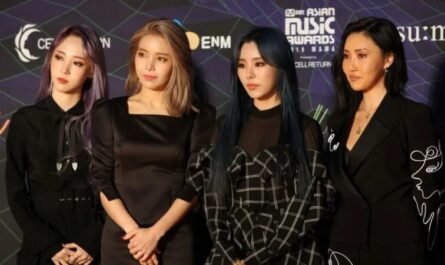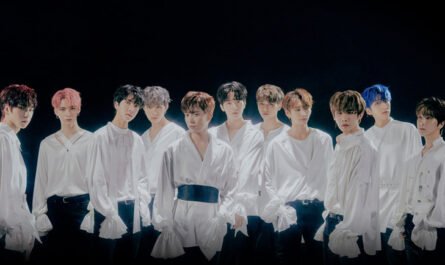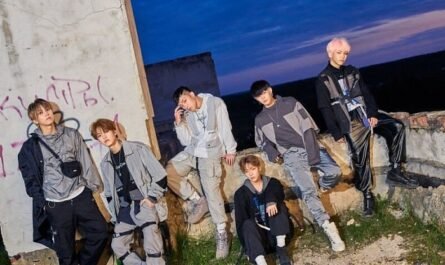This is the number of members in two famous communities related to K-pop aspirants in Vietnam. Facebook-based community ‘Dream of becoming a Korean idol’ and ‘Trainee Kpop-Hành trình thực hiện ước mư 3,800)’ attracts as many young Vietnamese as a star. There is only one thing they want. That is to become a K-pop star.
Kyu (anonymous, 18) from Binh Dinh, located in the coastal region of South Central Vietnam, is also one of the community members. He has been listening to K-pop since childhood. I often asked my parents if I wanted to listen to K-pop. Of course, the response that came back was cold. “I don’t understand anything, but do you still want to hear it?”
However, the language barrier was not an issue for Kyu. The rhythm and charm of K-pop continued to attract him. Kyu, who has been a fan of BTS since 2016, started dreaming of becoming a K-pop idol. I also applied for an audition. Of course, it was secretly from the family. It’s because my parents don’t like preparing for K-pop idols. In general, Korean entertainment companies audition mainly in three major cities in Vietnam: Hanoi, Ho Chi Minh City, and Da Nang City.
For this reason, Kyu had another goal. It is to go to university in Ho Chi Minh City. Kyu, like many others, longs for an end to COVID-19. This is because the Korean agency will start the offline audition.
Another member, Dinh Nguyen Tu Anh (19), also participated in an offline audition only once. SM Entertainment held it as ‘SM GLOBAL AUDITION IN VIETNAM,’ which started in 2018. However, due to the current impact of COVID-19, most auditions are held online. Most Vietnamese young people access audition information through SNS and apply to send demonstration videos via e-mail or Zalo called Vietnam’s Kakao Talk.
Ajou Economy started a small survey through two private Facebook pages on October 31st. Most of the survey respondents were young (11-19 years old), middle school, and high school students. Most of them first encountered K-pop around the age of 8 or 15. Those who have brothers and sisters come into contact earlier. Since kindergarten, Trinh Thi Thuy Tien, 17, has been exposed to Korean songs thanks to her sisters, K-pop fans.
As the Internet spread in Vietnam from 2014 to 2015 in earnest, young people’s interest in K-pop increased significantly. It was a time when social networking services (SNS) such as Facebook and YouTube had the opportunity to access idol news and information more quickly and easily.
According to the ‘2021 Hallyu Status Report’ published by the Korea Cultural Exchange Promotion Agency, the average consumption of Hallyu in Vietnam last year was 31.5%. This is ten percentage points higher than the global average (21.4%). Currently, the most popular Hallyu content in Vietnam is beauty (40.0%), drama (39.7%), and K-pop (34.9%). This shows that the attraction of the Korean Wave, especially K-pop, to Vietnamese young people is vast and shows no sign of declining.
Young people who took part in the Facebook survey said they had auditioned for big entertainment companies such as SM Entertainment, JYP Entertainment, YG Entertainment, Big Hit Music and BELIFT LAB, and other small companies.
Most Facebook survey respondents said that, like Kyu, they hide their dreams of becoming an idol from their parents and practice independently. This is because most adults in Vietnam still want their children to go to college, graduate, and have stable jobs rather than pursue an uncertain artistic path.
Knowing such expectations, Truong Bao Thuy Tien, 15, always does his best to maintain excellent grades at school. Instead of sleeping for 4 hours a day while attending extracurricular lectures, he spends the rest of his free time as rest. He said he would practice choreography and vocal training alone.
“My parents didn’t know much about K-pop, so of course they worried a lot when I talked about my dreams. But my parents also supported me and wanted to give me a chance to do what I wanted to do. I don’t want to regret that I missed the opportunity to pursue my dreams and later pursue what I love.”
Bum Yeon-jun, CEO of Bayu Entertainment, who conducted an online audition amidst the COVID-19 pandemic, pointed out that K-pop is no longer more than the songs sung by Koreans in Korean. As many as 20,000 people applied for the global online audition to organize the Beauty Box. The audition announcement posted to major K-pop communities in Asia and South America caused a considerable sensation.
“The trend has changed a lot in the last 5 to 10 years,” said CEO Beom. The music and performances of Korean singers, which some loved, began to emerge as mainstream worldwide. He posted the company’s executive history and audition announcements on online communities around the world. CEO Beom looked back at about 1,700 announcements posted in Korean and English alone.
CEO Bum said, “I felt it while conducting the audition, but basically, it became natural for the world’s public to accept K-Pop. “He said.
CEO Beom emphasized that the multinational idol Beauty Box, which was initially planned, is also a group that fits this trend. He said, “When I first uploaded the teaser for Beauty Box, which was about 40 seconds long, the reaction came so quickly in places like Vietnam, I was a little scared.” There seems to be a part,” he said.
As interest in K-pop spreads worldwide, CEO Beom said that foreign countries monitor how new groups debut with what kind of concept. “K-pop seems to have already crossed borders between countries,” he added.











